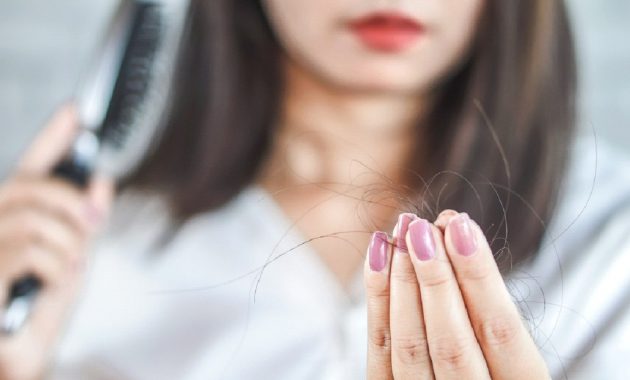Wondering how to control hair fall? Here are some tips that will help you fight hair fall head-on. Check it out.
Dealing with hair fall can be tough, but it doesn’t have to be the end of the world. With the right products and a bit of know-how, you can tackle hair loss head-on. Discovering those hidden causes of hair fall can give you the edge in keeping your hair strong and healthy.
Lesser Known Causes Of Hair Fall
1. Nutritional Deficiencies
If you are wondering how to reduce hair fall, the cue lies in a well-balanced diet. Nutritional deficiencies can lead to hair loss, as the body prioritizes vital organs over hair when nutrients are scarce. Iron deficiency, for example, is a common cause of hair thinning. Zinc, Vitamin D, Vitamin B12, and biotin are also vital for hair health. Without adequate levels of these nutrients, hair can become weak and more prone to falling out.
2. Incorrect Products Used
The beauty industry offers a plethora of hair care products, but not all products are suitable for hair fall. Adopting a gentle hair care routine can significantly reduce hair fall. Limit the use of harsh hair products that include sulfates, parabens etc. In need of the best shampoo for hair fall? Say hello to Love Beauty and Planet Onion, Blackseed & Patchouli shampoo. As per Dr. Sameera Kulkarni, Hair Care Program Leader, Hindustan Unilever “This hair fall control Shampoo is designed to reduce hair fall by 75%*. Infused with organic onion and blackseed oil, it is known to strengthen the hair, promoting healthy-looking hair.”
3. Tight Hairstyles
Constantly wearing tight hairstyles, such as ponytails, braids, and buns, can exert excessive tension on hair follicles. This tension can lead to traction alopecia, a condition where hair is pulled out from the root. Over time, this can cause permanent hair loss if the hair follicles are severely damaged.
4. Environmental Factors
Exposure to environmental pollutants and harsh weather conditions can weaken hair, making it more prone to falling out. UV radiation from the sun can damage the hair shaft, while humidity and toxins in the air can contribute to hair breakage. Additionally, hard water containing high levels of minerals can affect hair health by making it dry and brittle.
5. Scalp Infections
Scalp health is directly linked to hair health. Fungal infections, such as ringworm, can infect the scalp and cause patches of hair loss. Bacterial infections and conditions like folliculitis, an inflammation of the hair follicles, can also contribute to hair fall. Keeping the scalp clean and healthy is crucial for preventing these issues.
How to Combat Hair Fall
Addressing hair fall effectively involves tackling its root causes. Here are some strategies to help you combat hair loss and promote healthier hair growth:
1. Gentle Hair Care
Use a combination of gentle shampoo and other hair products. Ones that can combat hair fall and at the same time do not cause excessive damage.
2. Include A Conditioner In Your Hair Care Routine
Applying conditioner after shampooing helps restore moisture, smooth the hair cuticle, and make hair more manageable. It effectively detangles knots, reduces frizz, and creates a protective barrier that enhances the overall health of your hair.
For a conditioner that addresses hair fall while offering superior detangling and softness, try Love Beauty and Planet’s Onion, Blackseed & Patchouli Hair Fall Control Conditioner. Infused with organic onion and blackseed oil, this hair fall control conditioner strengthens your hair and leaves it looking and feeling healthier.
3. Balanced Diet
Maintaining a balanced diet is crucial for overall health, including hair health. Ensure your diet includes a variety of nutrients. Foods rich in iron, zinc, vitamins D and B12, and biotin can support hair health. Incorporate lean meats, leafy greens, nuts, seeds, and dairy products into your meals. Omega-3 fatty acids, found in fish like salmon and mackerel, are also beneficial for hair growth.
4. Protect From Environmental Damage
Shield your hair from harsh weather and pollutants to minimize damage. Wear hats or use protective sprays when necessary. In sunny weather, use a UV-protectant spray to guard your hair against harmful UV rays. In areas with high pollution levels, consider using a clarifying shampoo once a week to remove buildup from your hair.
5. No More Hot Showers
Hot water can strip your scalp of its natural oils, leading to dryness, irritation, and brittle locks prone to breakage. In contrast, lukewarm water gently preserves moisture, keeping your hair strong. Plus, it’s a game-changer for color-treated hair, as it slows down fading and maintains that gorgeous, freshly-colored look. And, as an added bonus, lukewarm water helps tame frizz and leaves your hair silky and smooth.
- Hair fall refers to hair breakage. Based on lab study
(Disclaimer: The above article is created by our branded content team in partnership with Love Beauty and Planet. The article is intended for informational purposes only and should not be considered a substitute for professional medical advice, diagnosis, or treatment. Health Shots does not endorse or assume responsibility for the product, service, or information presented. Readers are encouraged to consult their healthcare professional for medical advice.)
Get latest updates on health and wellness along with Brand Posts
#reduce #hair #fall
